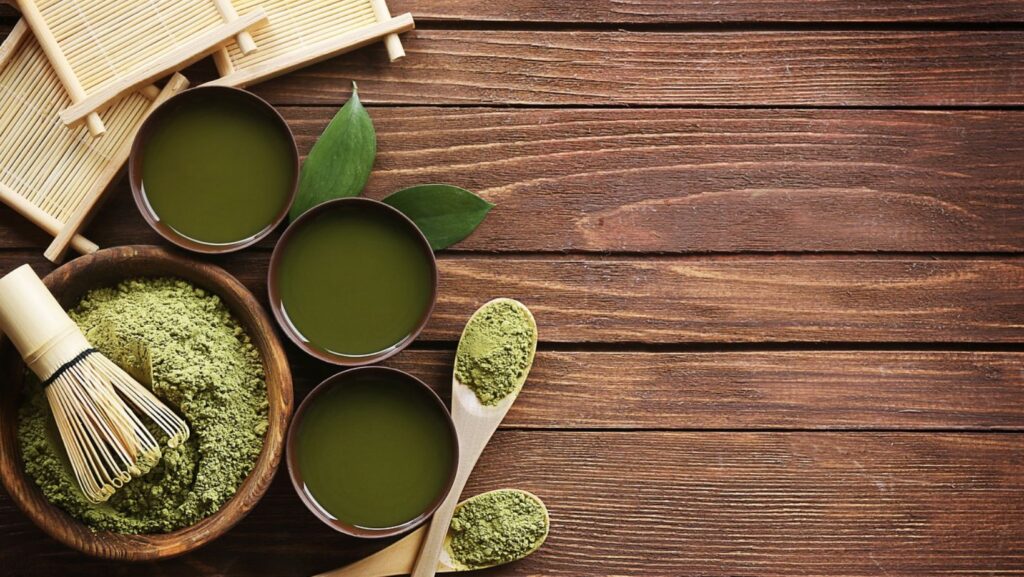Ancient Herbs For Modern Wellness: Benefits And Uses

Traditional medicine incorporates the therapeutic abilities of ancient herbs and supplements to improve overall well-being. Herbs have been integral to therapeutic practices and wellness regimes since ancient times. Even in the present world, ancient remedies hold a remarkable place in the holistic management of health issues and clinical symptoms.
Moreover, it offers a safe, reliable, and harmless approach to managing your mild-to-moderate health concerns in the long run. Keep reading to learn more about the ancient herbs and their effects on enhancing modern wellness practices.
1. Kratom
One of the most potent herbs used since ancient times for holistic health is Kratom or Mitragyna speciosa. The herb contains different active constituents like Mitragynine and 7-Hydroxy mitragynine. Such constituents have an impact on your brain’s opioid receptors, which can significantly improve your holistic health. You can use herbal tinctures and supplements to manage pain and act as a natural analgesic.
Apart from this, Kratom extracts also help manage frequent shifts in the mood and can induce a stimulating effect on your body. If you are wondering ‘is Kratom legal in Canada,’ then you can refer to the legal guidelines on the usage of Kratom in the region.
2. Lavender
Another useful ancient herb that can improve your lifestyle and wellness regime is Lavender or Lavandula Angustifolia. The herb grows native to the Mediterranean region and is often utilized for its aromatherapy benefits. Moreover, the herb contains active compounds like linalool and linalyl acetate, which can induce sedative effects on your body. As a result, lavender edibles and tea extracts can help tackle anxiety issues and incorporate a sense of relaxation in your body.
Research studies suggest that drinking lavender tea can improve your sleep routine and help you overcome sleep disorders in the long run. Hence, lavender may act as a potent anti-inflammatory aid with the potential to improve your sleep routine and manage psychological distress.
3. Chamomile
Did you know a cup of chamomile tea can help improve your sleep and tackle insomnia-like conditions? Chamomile or Matricaria chamomilla is a herb with potent therapeutic abilities and wellness benefits. With the right blend of active constituents like apigenin, which is a bioactive compound, it can lead to sedative and anti-inflammatory properties.
Also, consuming chamomile extracts or edibles can help improve your digestion, particularly in relieving bloating or upset stomach. When incorporating chamomile into your daily life, you can use chamomile tea extracts or essential oils to create a calming environment.
4. Thyme
Do you often suffer from respiratory discomfort, especially during seasonal changes or weather disturbances? If yes, you can make the most of Thyme extracts or Thymus vulgaris to manage respiratory discomfort and other health issues. Thyme contains potent active constituents like thymol and carvacrol, which can aid in anti-inflammatory effects. Further, the active constituents help manage common colds, coughs, and other respiratory discomforts due to seasonal disturbances.
Research suggests that consuming Thyme extracts can manage your digestive health and improve the gut flora. When adding Thyme extracts to your daily routine, you can try adding dried Thyme to your hot beverages. Along with this, you may inhale the streams containing Thyme infusions for relief from the common cold, cough, or other respiratory issues.
5. St. John’s Wort
Most people suffer from anxiety issues or depressive episodes at least once in their entire life. Mental health concerns are quite common in today’s world, and herbs like Hypericum perforatum or St. John’s Wort can help in managing such issues. Hypericum contains different constituents like hypericin and hyperforin, known for their antipsychotic and anti-inflammatory properties.
Hence, you may use the St. John’s Wort supplements or drink the tea infusions to manage mild to moderate depressive episodes. Along with this, hypericum extracts can promote skin recovery and manage skin regeneration to a great extent. Some researchers also state the benefits of hypericum extracts in different nerve-related conditions and nervous pain.
6. Basil
If you tend to suffer from digestive discomfort and bloating often, ancient herbs like basil or Ocimum basilicum can help in the long run. With extensive active constituents like eugenol and rosmarinic acid, the herb possesses anti-inflammatory and antioxidant properties. Along with this, the herbal constituents can help manage the oxidative distress that arises from free radical damage.
Hence, you can manage different inflammatory issues and support your connective tissue health through herbal extracts. All you need to do is add a few fresh basil leaves to your meals as a garnish. Also, starting your day with a cup of hot basil tea can aid in proper digestion and help you manage constipation issues in the long run.
Final Verdict
Herbal medicine holds a significant place in traditional medicine. It involves using different parts of ancient herbs to improve your health and well-being. Every person suffers from mild to moderate health issues, which demand a reliable aid in the form of herbal extracts. For this, you can use ancient herbs like Kratom, chamomile, or lavender for holistic well-being.
You may use thyme extracts to manage respiratory discomfort or resort to hypericum tea to maintain a sound and healthy mind. While herbal extracts show promising results in improving your homeostasis, you must consult an expert for the ideal form and dosage of the herbal extract. Not only will it help you stay away from any adverse effects, but it also enhances your immunity and body’s defense mechanisms.



 The Thrill of Forbidden Relationships: How Failure Can Turn Into a Jackpot for a Brother and Sister in the Comic “Prank Goes Wrong”
The Thrill of Forbidden Relationships: How Failure Can Turn Into a Jackpot for a Brother and Sister in the Comic “Prank Goes Wrong”  Understanding HIV Integraseinhibitor Cabotegravir (GSK1265744)
Understanding HIV Integraseinhibitor Cabotegravir (GSK1265744)  Ensuring Safety and Legality: What Pakistani Players Should Know About 1win
Ensuring Safety and Legality: What Pakistani Players Should Know About 1win